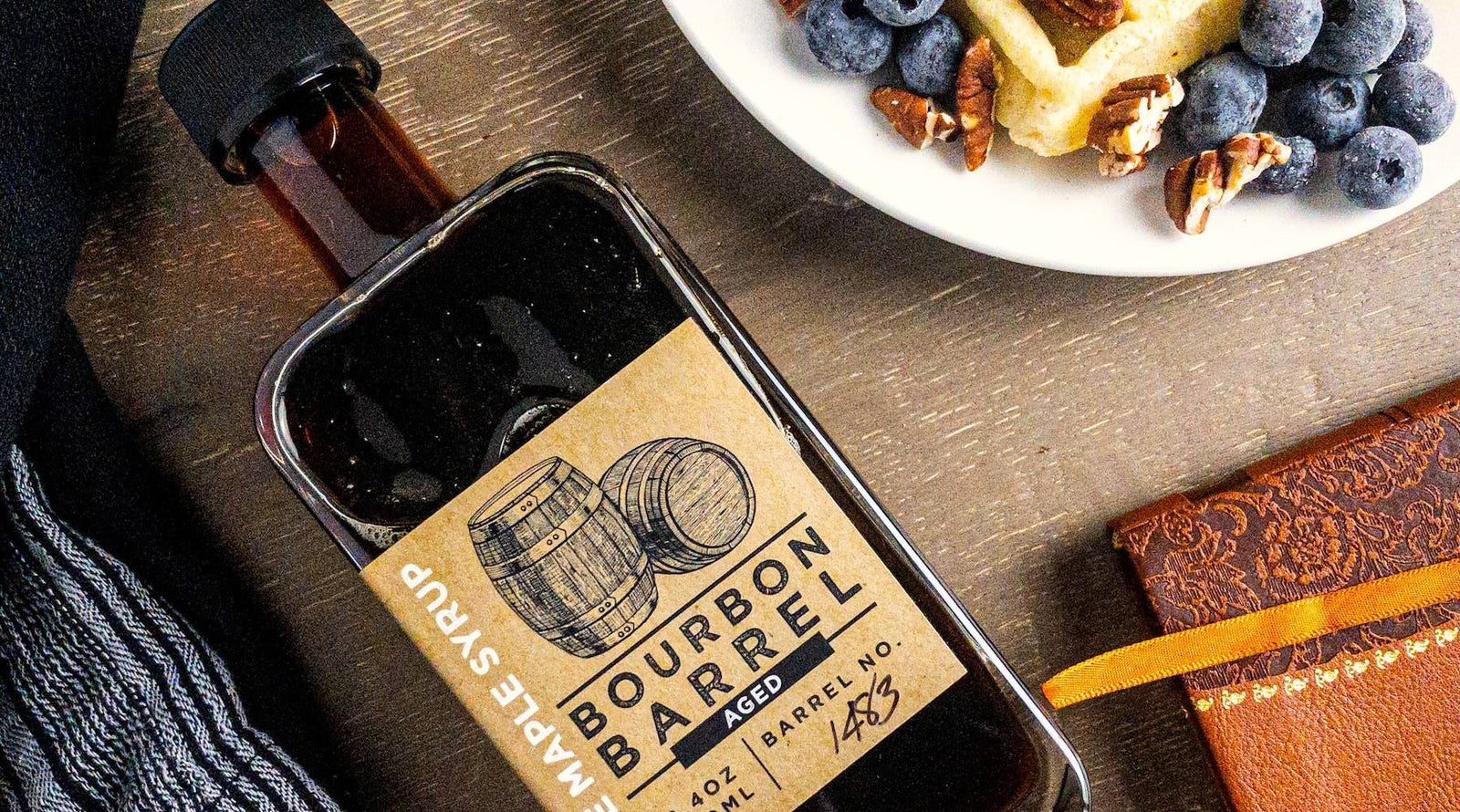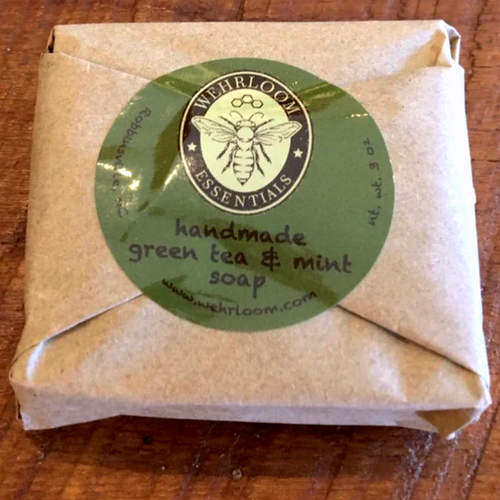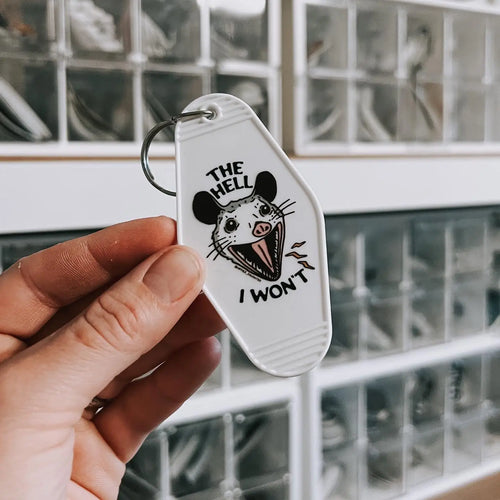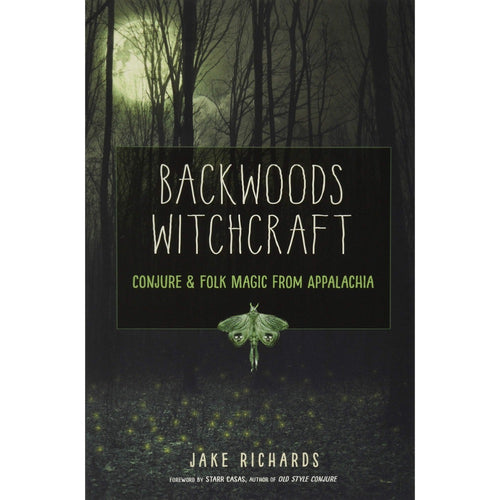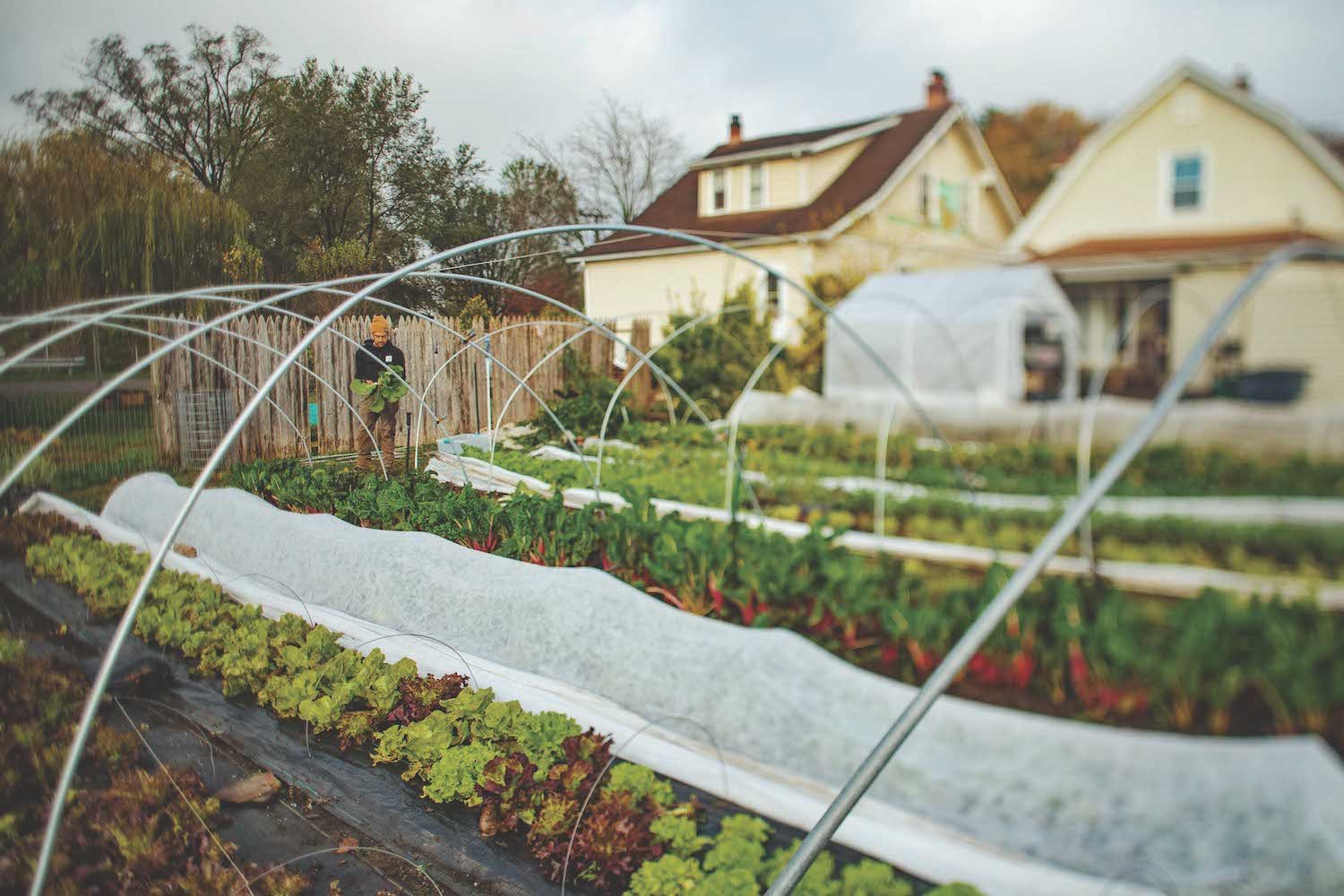
Cameron Terry at one of his urban plots. Photography by Sam Dean.
Cameron Terry’s family hadn’t farmed for two generations. Decades ago, his grandfather decided that life as a Georgia peanut farmer wasn’t for him, so he enlisted in the military and traveled the world for 20 years, eventually settling in Colorado. “He wanted to be as far from the farm as possible,” Terry says.
Yet, for all his grandfather’s attempts to distance himself from farming, Terry was obsessed with it. While living in the heart of Denver and working an uninspiring day job, Terry directed all his passion and energy into plants. Lettuce led to squash. Squash led to strawberries. Strawberries led to greens. “I was living a very rural lifestyle in the middle of the city,” he says.
Before long, Terry was out of room and out of patience. He knew he wanted to be a farm entrepreneur, but with the cost of land, he just couldn’t figure out how to make it work. Then, during a 2017 farming sabbatical in Canada, he stumbled upon Curtis Stone. This small-farm guru says he generates $100,000 a year on five yard-sized plots, totaling just one quarter of an acre. Aside from his own small yard, which serves as the business’s home base, Stone doesn’t own any of the land he farms. “We lease it out from homeowners in exchange for vegetables,” he explains on his YouTube channel, which has nearly 450,000 subscribers, “And we take all the labor of maintaining the lawn off them. A lawn is essentially a cost center. It doesn’t really produce anything for you.”
As unconventional as it seems, Stone is on to something. According to the Environmental Protection Agency, nearly 40 million acres of turf-grass cover lawns in the United States. Those lawns may be lovely, but keeping them green requires feeding, watering, and maintenance, like a farm or garden—without producing food or offering habitat to wildlife. Perhaps the land could be put to a different use.
Before he even made it back to Denver, Terry had finished reading Stone’s 240-page book and knew he’d finally found a way to farm without owning a single acre. “I had some savings,” he says, about $10,000, “and just pushed all the chips into the middle of the table.” Two months later, he moved from Denver to Roanoke, where his girlfriend’s parents had offered to let him farm their backyard.
The region has a rich agricultural tradition, but Terry charted new ground by selling produce grown within the city limits. “Nothing I bring people is ever more than 24 hours old. It goes from the field into the cooler within a few minutes.

Overhead view of one of Terry's backyard farms.
This unprecedented level of freshness caught the eyes of consumers at local farmers’ markets, where Terry first began selling—and, before long, restaurateurs like Nathan Sloan, the owner and executive chef at Bloom in Roanoke’s up-and-coming Wasena neighborhood. Says Sloan, “I was taught as a young chef in French restaurants, it’s all about the quality of the produce."
Terry provides Sloan with an exclusive lettuce mix that he uses at Bloom every week, mostly in salads, plus seasonal produce like okra, okra flowers, pea shoots, sunflower shoots, and wasabi shoots. Sloan weaves these fresh vegetables into his constantly evolving menu. Although Terry is a new grower, Sloan says he’s already on par with people who have been farming for decades.
Today, Terry’s business, Garden Variety Harvests, farms a hard-working quarter-acre spread across three plots, growing everything from strawberries to Napa cabbage. It’s the same amount of land as his inspiration, the Canada-based Stone, and, like Stone, Terry has made smart choices, focusing on high-value products and strategically intercropping them. His small acreage produces enough food to supply a half-dozen restaurants while he continues to sell at farmers’ markets.
Even so, Terry can see a point where he’ll need more space. “It becomes difficult to maintain more than a quarter-acre of land by myself, with all the driving and having to be in so many places at once,” he says. To find room to grow, Terry is now working with a cooperative farm trust, Southwest Virginia Agrarian Commons. Following a model used in nine other communities across the country, they hope to secure larger plots, over 10 acres, through purchase or donation. The trust will then subdivide those plots and lease them to small farms like Garden Variety Harvests.
“We believe agricultural land should be used to feed the immediate community,” says Terry, who sees this extending naturally from ideals that drove him to farm yards in the first place. “The best way to do that is make sure the community owns the land.” But he knows that any transition is still a year or two away. For now, Garden Variety Harvest continues tilling underused yards and open spaces within Roanoke’s city limits, growing food for the same community where he lives.



